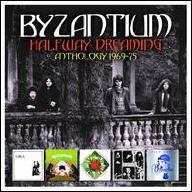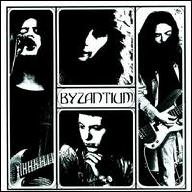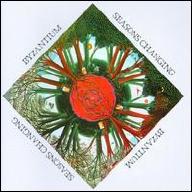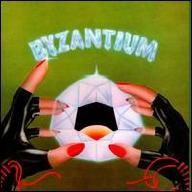Byzantium's genesis can be traced back to the University College School in Hampstead, where future members Jamie Rubenstein (vocals, guitar), Nico Ramsden (vocals, guitar), Chaz Jankel (vocals, guitar), Robin Lamble (bass, vocals), and Steve Corduner (drums) were all active participants in the school's nascent late-'60s music scene. Rubenstein in particular had found some success leading a progressive pop group called Ora, who cut a record for London indie Tangerine Records in 1969. Though a key player later on, his experience with Ora left him reluctant to fully commit to a music career and by the time Byzantium officially formed in 1970, he opted to serve as an off-stage contributing songwriter with Jankel filling what would have been his live role. The group's unique sound and dynamic performances began to attract a modicum of music industry interest, and the initial quartet of Ramsden, Jankel, Lamble, and Corduner cut a handful of demos at Tangerine studios, now helmed by former Ora member turned producer Robin Sylvester. Billy Gaff, then manager of Rod Stewart, soon added Byzantium to his roster and helped them land a deal with AM Records in 1972. With management, a major label, and a catalog of quality songs, the wheels were suddenly in motion and the band were sent out on the road with bigger names like Rory Gallagher, the Faces, Man, and Hawkwind. With future Queen producer Roy Thomas Baker engineering, they entered Trident Studios to record their eponymous debut, which appeared in September that year.
Young, talented, and extremely ambitious, Byzantium came out of the gate with an impressive amalgam of competing styles ranging from hard progressive rock to jazz, funk, folk, and American West Coast pop. Though admired by critics, AM found the album tough to market to mainstream audiences. Adding to Byzantium's woes, Ramsden left the group even before the record's release, effectively opening a slot for Rubenstein to step back up to the mic, which he promptly did, bringing with him lead guitarist Mick Barakan.
While promoting their debut with gigs alongside Status Quo, this new quintet lineup of Byzantium continued to morph into an even more eclectic unit whose stylistic variety further revealed itself on their 1973 follow-up. Along with their complex symphonic prog-rock suites and hard rock guitar thump, Seasons Changing saw Byzantium exploring even more American influences, particularly country-rock and the jam band style of the Grateful Dead. With everyone but Corduner contributing songs and lead vocals, the group were a dynamic creative powerhouse, though their inability to stay in a single musical lane again confused both audiences and their label, which promptly dropped them. Once again bleeding assets, Byzantium were also bid goodbye by manager Gaff and singer/guitarist Jankel.
While this might have been enough to sink most bands, Byzantium endured the shake-up and soldiered on into the final phase of their career. Shrunk back to a lean quartet, they renewed focus on their live shows and entered the studio to record an independent album that would showcase their best attributes. Released privately in 1974 and limited to just 100 copies, Live Studio was intended as a calling card to prospective labels and management, which is where the bulk of its copies were sent. Ironically, the group's most streamlined and concise album was heard by almost no one and aside from netting the band a very complimentary feature in British monthly Let It Rock, it failed at its intended job. Barely hanging on financially, Byzantium gigged heavily into 1975 with their longtime friend and producer Robin Sylvester joining them on the road to run sound and make surprisingly pristine soundboard recordings. Throwing everything they had into one final gambit, the group cut four stellar demos for Atlantic Records in the summer of that year. When the label ultimately passed, the deflated group finally called it quits.
Over the coming decades, Byzantium slowly took the luster of cult status while most of their former members stayed on in various facets of the music industry. Some notable post-Byzantium activity included Barakan reinventing himself in the U.S. as Shane Fontayne, Jankel becoming a keystone of Ian Dury's Blockheads, and Lamble joining up with Al Stewart. Corduner drummed for a number of acts including Kirsty MacColl and Nico, while Rubenstein turned to the business side, eventually serving as head of legal and business affairs at Virgin Records. Their scant output remained largely out of print and highly sought after until 2021 when British archival label Grapefruit Records compiled the whole of Byzantium's work into a lovingly curated five-disc box set called Halfway Dreaming: Anthology 1969-1975, which included all three albums, the pre-Byzantium Ora LP, and an array of live and demo recordings. ~ Timothy Monger, Rovi















